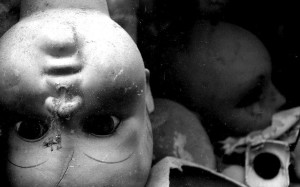Opinion is a vast merchandise that everyone possesses and uses. Its production involves a large portion of the economy, and its consumption takes up much of people’s time. Its main characteristic is clarity.
We hasten to point out that there is no such thing as an unclear opinion. Everything is either yes or no. Different levels of thought or doubt, contradiction and painful confessions of uncertainty are foreign to it. Hence the great strength that opinion gives to those who use it and consume it in making decisions or impose it on the decisions of others.>
In a world that is moving at high speed toward positive/negative binary logic, from red button to black, this reduction is an important factor in the development of civil cohabitation itself. What would become of our future if we were to continue to support ourselves on the unresolved cruelty of doubt? How could we be used? How could we produce?
Clarity emerges when the possibility of real choice is reduced. Only those with clear ideas know what to do. But ideas are never clear, so there are those on the scene who clarify them for us, by supplying simple comprehensible instruments: not arguments but quizzes, not studies but alternative binaries. Simply day and night, no sunset or dawn. Thus they solicit us to pronounce ourselves in favor of this or that. They do not show us the various facets of the problem, merely a highly simplified construction. It is a simple affair to pronounce ourselves in favor of a yes or no, but this simplicity hides complexity instead of attempting to understand and explain it. No complexity, correctly comprehended, can in fact be explained except by referring to other complexities. There is no such thing as a solution to be encountered. Joys of the intellect and of the heart are cancelled by binary propositions, and are replaced with the utility of “correct” decisions.
But no one is stupid enough to believe that the world rests on two logical positive and negative binaries. Surely there is a place for understanding, a place where ideas again take over and knowledge regains lost ground. Therefore, the desire arises to delegate this all to others who seem to hold the answers to the elaboration of complexity because they suggest simple solutions to us. They portray this elaboration as something that has taken place elsewhere and therefore represent themselves as witnesses and depositories of science.
So the circle closes. The simplifiers present themselves as those who guarantee the validity of the opinions asked, and their continual correct production in binary form. They seem to be wary of the fact that once opinion — this manipulation of clarity — has destroyed all capacity to understand the intricate tissue that underlies it, the complex unfoldings of the problems of conscience, the fevered activity of symbols and meanings, references and institutions, it destroys the connective tissues of differences. It annihilates them in the binary universe of codification where reality only seems to have two possible solutions, the light on or the light off. The model sums up reality, cancels the nuances of the latter and displays it in pre-wrapped formulas ready for consumption. Life projects no longer exist. Instead symbols take the place of desires and duplicate dreams, making them dreams twice over.
The unlimited amount of information potentially available to us does not allow us to go beyond the sphere of opinion. Just as most of the goods in a market where every possible, useless variety of the same product does not mean wealth and abundance but merely mercantile waste, an increase in information does not produce a qualitative growth in opinion. It does not produce any real capacity to decide what is true or false, good or bad, beautiful or ugly. It merely reduces one of these aspects to a systematic representation of a dominant model.
In reality, there is no good on the one side or bad on the other. Rather there is a whole range of conditions, cases, situations, theories and practices which only a capacity to understand can grasp, a capacity to use the intellect with the necessary presence of sensibility and intuition. Culture is not a mass of information, but a living and often contradictory system, through which we gain knowledge of the world and ourselves. This is a process which is at times painful and hardly ever satisfying, with which we realize the relationships which constitute our life and our capacity to live.
By canceling out all of these nuances, we again find ourselves with a statistical curve in our hands, an illusory course of events produced by a mathematical model, not a fractured and overwhelming reality,
Opinion provides us with certainty on the one hand, but on the other it impoverishes us and deprives us of the capacity to struggle, because we end up convinced that the world is simpler than it is. This is totally in the interest of those who control us. A mass of satisfied subjects convinced that science is on their side, that is what they need in order to realize the projects of domination in the future.
